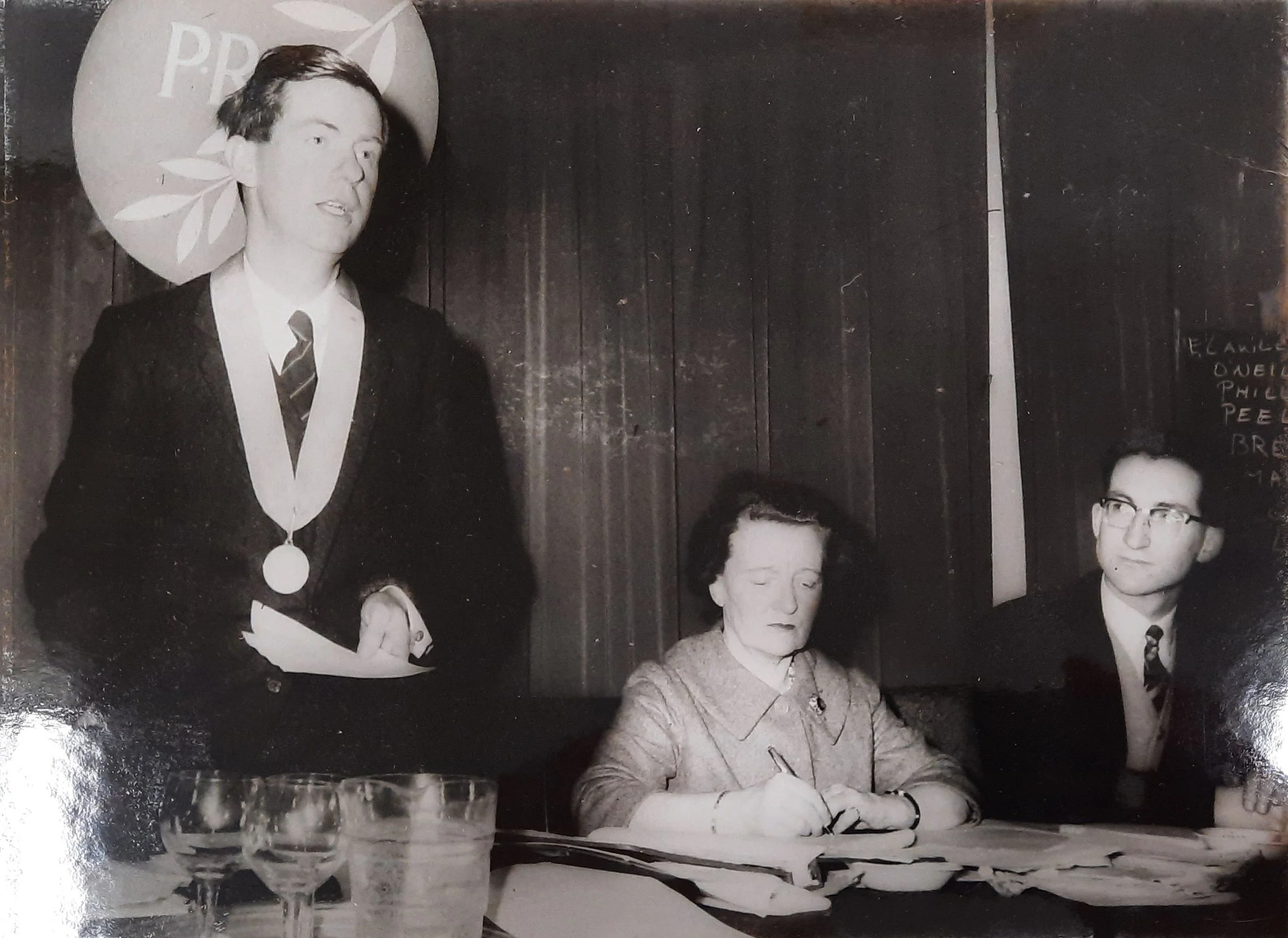
Have you ever considered the remarkable transformation of a high school principal into a prominent political leader during one of the most challenging periods in history? Allow us to introduce you to **William Aberhart**, a figure whose evolution from a modest educator to the inaugural premier of Alberta is truly captivating. Aberhart’s journey is not just about personal ambition; it reflects the broader socio-political landscape of his time. In this article, we will explore the intricacies of his life, delve into his core beliefs, and examine the significant influence he wielded over Alberta during the tumultuous years of the Great Depression. His story is one of resilience, vision, and the quest for social justice, making it a compelling narrative that resonates even today. Join us as we uncover the legacy of a man who shaped the future of a province in dire need of leadership and hope.
Early Life and Education

Born to Lead
William Aberhart entered the world on December 30, 1878, in the small community of Kippen, Ontario. Raised in a humble household, he quickly grasped the importance of diligence and perseverance. His early life experiences instilled in him a strong work ethic that would serve him well throughout his career. After completing his formal education, Aberhart embarked on a teaching career, demonstrating his commitment to shaping young minds. His dedication and talent eventually led him to the esteemed role of high-school principal in Calgary, where he continued to influence the lives of countless students.
From Teacher to Preacher
Aberhart’s influence extended far beyond the classroom; he was also a devoted Protestant lay preacher. His dual passion for education and preaching became the cornerstone of his future pursuits. Picture a man who could ignite a spark of curiosity in his students while simultaneously inspiring faith and hope in his congregants—this was the essence of Aberhart. His ability to connect with people on both intellectual and spiritual levels made him a unique figure in his community, allowing him to leave a lasting impact on those he encountered.
The Rise of a Radio Evangelist

Finding His Voice
During the mid-1920s, Aberhart emerged as a prominent figure in the realm of radio evangelism, earning himself the affectionate moniker “Bible Bill.” His radio broadcasts captivated the attention of thousands of listeners, providing him with a powerful platform to disseminate his religious beliefs and political ideologies. It was as if he possessed a personal megaphone that amplified his voice, allowing his messages to resonate throughout Alberta and beyond. This newfound influence not only solidified his status as a spiritual leader but also laid the groundwork for his future endeavors in the political arena, as he sought to inspire and mobilize his audience.
Calgary Prophetic Bible Institute
In the year 1927, Aberhart took a significant step in his mission by establishing the Calgary Prophetic Bible Institute. This institution quickly became a central hub for his teachings, drawing in a diverse group of followers eager to learn from his insights. Within the walls of the institute, Aberhart began to weave together his fervent religious convictions with innovative economic theories, creating a unique blend of ideas that would ultimately shape his future political aspirations. The Calgary Prophetic Bible Institute not only served as a place of education but also as a breeding ground for the ideas that would later influence the political landscape of Alberta.
Social Credit: A New Economic Theory

Understanding Social Credit
Aberhart’s political ideology was significantly shaped by the unconventional monetary-reform theories put forth by British economist C.H. Douglas. He was convinced that the economic hardships faced by society during his time could be effectively addressed through the innovative concept of Social Credit. But what does Social Credit truly entail, and how does it function in practice?
Dividends for All
At its essence, Social Credit advocates for the government to distribute dividends to every citizen, reflecting the actual wealth generated within the province. Picture this: a monthly financial check arriving in your mailbox simply for being a resident! Aberhart believed that such a system would not only provide a safety net for individuals but also serve as a catalyst for economic growth by increasing consumer spending. By empowering citizens with additional financial resources, he argued that poverty could be alleviated, and overall economic activity could be stimulated, leading to a more prosperous society for all. This radical approach aimed to reshape the relationship between the government and its citizens, fostering a sense of community and shared wealth.
Political Career: The Social Credit Party

Founding the Party
In the early 1930s, Aberhart took his ideas to the political arena, founding the Social Credit Party. His charisma and innovative ideas attracted many supporters, especially during the economic turmoil of the Great Depression.
Victory in the 1935 Election
In the 1935 provincial election, Aberhart’s party won a staggering 56 out of 63 assembly seats. This victory was a testament to the public’s desire for change and hope during a time of despair. Aberhart became the premier and minister of education, ready to implement his vision for Alberta.
Challenges and Controversies

Unconstitutional Legislation
Despite his ambitious plans, Aberhart faced significant challenges. The necessary legislation to implement his Social Credit system was declared unconstitutional by the federal government. Talk about a roadblock! But did Aberhart give up? Not a chance.
Staying the Course
Even with the federal government’s disapproval, Aberhart continued to lead Alberta, steering its economy along more traditional financial lines. He was determined to make Alberta a shining example of his Social Credit ideals, even if it meant working within the existing system.
Legacy of William Aberhart

A Lasting Impact
William Aberhart passed away on May 23, 1943, but his legacy lives on. His ideas about Social Credit influenced future political movements and discussions about economic reform in Canada. He was a pioneer, a visionary, and a man who dared to dream of a better society.
Lessons Learned
Aberhart’s life teaches us that leadership is not just about holding a title; it’s about inspiring change and believing in a vision. His journey from a teacher to a premier shows that anyone can make a difference, no matter their background.

William Aberhart’s story is a remarkable chapter in Alberta’s history. From his humble beginnings to his role as a political leader during the Great Depression, he left an indelible mark on the province. His innovative ideas about Social Credit may have faced challenges, but they sparked conversations that continue to resonate today.
Table: Key Events in William Aberhart’s Life

| Year | Event |
|---|---|
| 1878 | Born in Kippen, Ontario |
| 1910-1935 | Served as a high-school principal and lay preacher |
| 1927 | Founded the Calgary Prophetic Bible Institute |
| 1932 | Promoted Social Credit monetary theories |
| 1935 | Won the provincial election, becoming premier |
| 1943 | Died in Vancouver, B.C. |
So, the next time you hear about Social Credit or the history of Alberta, remember the name William Aberhart. His life is a testament to the power of ideas and the impact one person can have on society.

